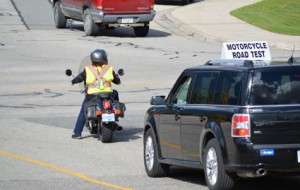Motorcycle Licensing Changes ICBC

Changes are coming to the Graduated Licensing Program
The Government of B.C. has introduced legislation to allow ICBC, in partnership with RoadSafetyBC, to modernize British Columbia’s Graduated Licensing Program (GLP) while maintaining a high standard of safety on B.C. roads.
If this legislation is passed, starting in early 2026, drivers with a Class 7 Novice licence and a clean driving record won’t need to take a second road test to get a Class 5 licence. This change will also introduce a 12-month restriction period, during which drivers must demonstrate safe driving behaviours.
Motorcycles in Particular
ICBC also intends to introduce a new motorcycle licensing program with enhanced licensing requirements and safety measures, such as protective gear, that will help reduce motorcycle-related fatalities and injuries.
At this time, we do not know what manner of protective gear or certification of protective gear ICBC will require. Whether it be the European EN17092 standard which requires samples tested on a Darmstadt to determine abrasion resistance or some other safety standard, we will let you know as soon as more information is released.
How is motorcycle licensing changing?
ICBC will be introducing a new motorcycle licensing program that makes sure new riders undergo a more robust process to get licensed, with enhanced licensing requirements and safety measures, such as protective gear.
We’ll provide more details as we learn more.
Why is ICBC changing motorcycle licensing?
Motorcycle riders are vulnerable road users and are unprotected if they’re in a crash. Inexperienced riders also have a higher crash risk.
Currently, motorcycles are 3.7% of insured vehicles in B.C., but their riders are involved in 14.2% of crash fatalities.
The upcoming changes will make sure new riders undergo a more robust process to get licensed and help reduce motorcycle-related injuries and fatalities.





